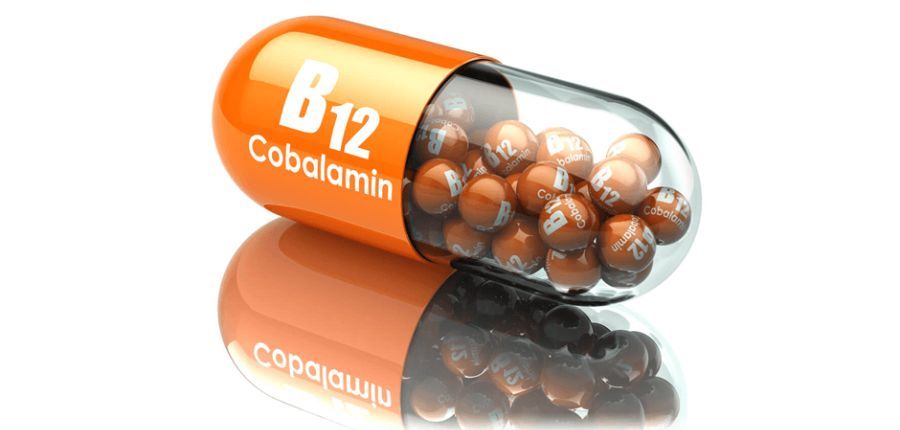Vitamin B12, also known as cobalamin, is an essential vitamin that plays a key role in many of the body’s functions. It helps produce red blood cells, maintains a healthy nervous system, and keeps the body’s metabolism running smoothly.
Not getting enough vitamin B12 can lead to various health issues, including anemia, nerve damage, fatigue, and more. In this blog post, we’ll discuss the benefits of vitamin B12, food sources that contain vitamin B12, the signs and symptoms of vitamin B12 deficiency, and any possible side effects associated with it.
What is vitamin B12 and what does it do?
Vitamin B12 is an essential vitamin that plays an important role in your body. It helps keep your nerve and blood cells healthy, helps with the production of DNA, and it aids in the metabolism of fats and proteins.
Vitamin B12 is also known as cobalamin. It’s found naturally in animal-based foods, such as eggs, milk, fish, poultry, and meat. It’s also available in fortified foods, such as breakfast cereals, and certain dietary supplements.
Vitamin B12 is essential for many of the body’s functions. It helps form red blood cells, which carry oxygen throughout your body. It also helps with neurological functions, such as brain development and nerve communication. Additionally, it helps regulate homocysteine levels, which can help reduce your risk for heart disease. Vitamin B12 also helps with the synthesis of DNA and RNA, and it’s important for cell metabolism.
It’s important to get enough vitamin B12 to support these essential functions. Not getting enough can lead to a deficiency, which can cause a range of health problems.
How much vitamin B12 do you need?
The recommended daily allowance (RDA) of vitamin B12 for adults is 2.4 micrograms per day. This amount is necessary to ensure that your body has enough vitamin B12 to produce red blood cells, as well as to support nerve and brain function. For pregnant and lactating women, the RDA increases to 2.6 and 2.8 micrograms per day, respectively.
Individuals who are at risk of developing a vitamin B12 deficiency should speak with their doctor about increasing their daily intake of the vitamin. Those who may be at higher risk of deficiency include vegetarians and vegans, older adults, individuals with malabsorption issues, people with pernicious anemia, and those taking certain medications.
If you are considering taking a supplement, it is important to talk to your doctor first to determine the appropriate dosage. Vitamin B12 is available in a variety of forms, including capsules, tablets, sublingual drops, and injectable solutions. Be sure to follow the instructions on the product label carefully when taking any type of supplement.
Where can you get vitamin B12?
Vitamin B12 is found in a variety of foods, including animal products such as meat, fish, dairy, and eggs. Plant-based sources of B12 are limited, although some fortified foods (such as breakfast cereals) and supplements may be helpful.
Animal products are the best dietary sources of vitamin B12 because they contain the active form of the nutrient. Examples include beef liver, clams, salmon, trout, tuna, fortified breakfast cereals, yogurt, and cheese.
Eggs are also a good source of vitamin B12, as well as protein, selenium, vitamin A, and other nutrients. Fortified plant-based milks are another good option for vegans or those who don’t eat animal products.
If you have a vitamin B12 deficiency or need to take supplements, there are several options available. Many multivitamins contain vitamin B12, and there are also specific B12 supplements available. Vitamin B12 shots may be recommended for those with certain medical conditions.
Can vitamin B12 be harmful?
Although vitamin B12 is generally safe for most people, taking too much of it can cause unwanted side effects. Large doses of vitamin B12 have been linked to certain health risks, such as high blood pressure and increased risk of stroke. In people with certain medical conditions, such as kidney or liver disease, taking too much vitamin B12 can also be dangerous.
In addition, individuals who are pregnant or breastfeeding should not take large doses of vitamin B12 without first consulting a doctor. Some studies suggest that consuming more than the recommended daily allowance (RDA) may increase the risk of birth defects in some cases.
Some people may also be allergic to vitamin B12. Symptoms of an allergic reaction include rash, itching, hives, swelling, difficulty breathing, and dizziness. If you experience any of these symptoms after taking a vitamin B12 supplement, seek medical attention immediately.
It is also important to note that many vitamin B12 supplements on the market contain other ingredients that could potentially be harmful. Be sure to read the label carefully and look for any additional ingredients or warnings before taking any supplement.
Conclusion
Vitamin B12 (cobalamin) is an essential nutrient that plays an important role in maintaining energy levels, red blood cell production, and neurological health. It is found naturally in animal products like meat, eggs, and dairy, as well as fortified foods like breakfast cereals and plant-based milks. Vitamin B12 supplements are also available for those who are at risk of deficiency.
The recommended daily amount of vitamin B12 for adults is 2.4 mcg, however, people with certain health conditions may require more. Taking too much vitamin B12 can be harmful and cause side effects like nausea, headache, and an increased risk of heart disease.
Therefore, it’s important to speak with your doctor before starting a vitamin B12 supplement. Overall, vitamin B12 is an important nutrient that is essential for good health and can be obtained through a balanced diet or through supplementation.
